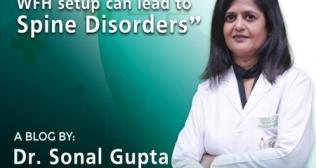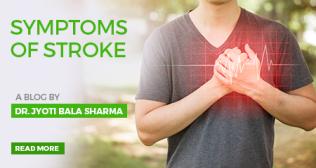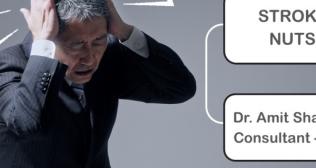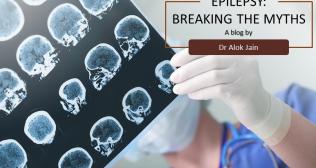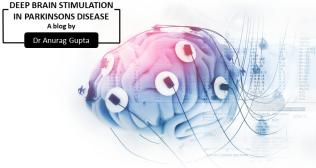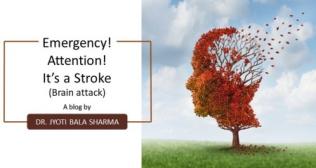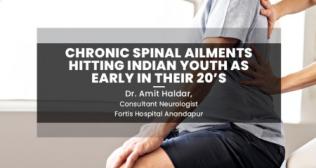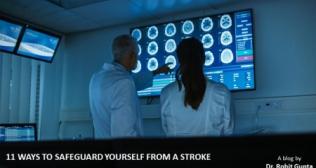
Deep Brain Stimulation Parkinsons
Q: What is DBS?
A: Deep brain stimulation (DBS) is a neurosurgical procedure involving the placement of a medical device called a neurostimulator, which sends electrical impulses, through implanted electrodes, to specific targets in the brain (the brain nucleus) for the treatment of movement disorders, including Parkinson's disease, essential tremor, dystoni
Q :How DBS works ?
A: The connections in the brain circuits are similar to the electrical wiring in your house or car. If one circuit malfunctions, it can disrupt the entire system. Research has shown that in PD there are faulty signals in several brain circuits. These faulty or disruptive signals seem to underpin many of the symptoms of PD (e.g., slowed movement, tremor, and stiffness). When electricity is introduced into the circuit it “disrupts the disruption,” restoring order and improving disabling symptoms. The electric current is thought to inhibit cell firing, excite the axons (the pipes), and release calcium from brain cells called astrocytes. Calcium seems to trigger a series of reactions that leads to the release of chemicals called neurotransmitters and the stimulation of blood flow
Q: Is DBS a cure for Parkinson’s disease?
A: No, DBS is not a cure for PD. It is a treatment that helps relieve the motor symptoms of PD, as well as some of the non-motor symptoms. It is called a symptomatic therapy; it does not change disease progression.
Q: What symptoms does DBS help?
A: DBS can help improve the motor symptoms of PD. Typically, these are: Tremor. Complete or partial tremor suppression Rigidity, or stiffness Bradykinesia, or slowness of movement.
Q: Who is DBS is recommended to?
A: It is recommended for people who have PD with motor fluctuations and tremor inadequately controlled by medication, or to those who are intolerant to medication, as long as they do not have severe neuropsychiatric problems. Selection of the correct DBS target is a complicated process. Multiple clinical characteristics are used to select the target including – identifying the most troublesome symptoms, the dose of levodopa that the patient is currently taking, the effects and side-effects of current medications and concurrent problems.
Q: What are the risks and complications of DBS?
A: The major complications include hemorrhage (1–2%) and infection (3–5%). The potential exists for neuropsychiatric side effects after DBS, including apathy, hallucinations, hypersexuality, cognitive dysfunction, depression, and euphoria.
Conclusion
At Fortis Healthcare, the best hospital in India, we offer comprehensive deep brain stimulation treatment, providing cutting-edge surgical procedures and personalized therapy plans to address conditions like Parkinson's disease. Our expert team ensures that patients receive top-quality care from diagnosis to post-operative management, prioritizing their well-being and long-term health outcomes. With a commitment to excellence and a patient-centric approach, we strive to make deep brain stimulation accessible and effective, offering hope and relief to individuals seeking advanced neurological treatments. Experience the difference with Fortis Healthcare, where compassionate care meets innovative solutions for a brighter future.
Popular Searches :
Hospitals: Cancer Hospital in Delhi | Best Heart Hospital in Delhi | Hospital in Amritsar | Hospital in Ludhiana | Hospitals in Mohali | Hospital in Faridabad | Hospitals in Gurgaon | Best Hospital in Jaipur | Hospitals in Greater Noida | Hospitals in Noida | Best Kidney Hospital in Kolkata | Best Hospital in Kolkata | Hospitals in Rajajinagar Bangalore | Hospitals in Richmond Road Bangalore | Hospitals in Nagarbhavi Bangalore | Hospital in Kalyan West | Hospitals in Mulund | Best Hospital in India | | Cardiology Hospital in India | Best Cancer Hospital in India | Best Cardiology Hospital in India | Best Oncology Hospital In India | Best Cancer Hospital in Delhi | Best Liver Transplant Hospital in India
Doctors: Dr. Rana Patir | Dr. Rajesh Benny | Dr. Rahul Bhargava | Dr. Jayant Arora | Dr. Anoop Misra
| Dr. Manu Tiwari | Dr. Praveer Agarwal | Dr. Arup Ratan Dutta | Dr. Meenakshi Ahuja | Dr. Anoop Jhurani | Dr. Shivaji Basu | Dr. Subhash Jangid | Dr. Atul Mathur | Dr. Gurinder Bedi | Dr. Monika Wadhawan | Dr. Debasis Datta | Dr. Shrinivas Narayan | Dr. Praveen Gupta | Dr. Nitin Jha | Dr. Raghu Nagaraj | Dr. Ashok Seth | Dr. Sandeep Vaishya | Dr. Atul Mishra | Dr. Z S Meharwal | Dr. Ajay Bhalla | Dr. Atul Kumar Mittal | Dr. Arvind Kumar Khurana | Dr. Narayan Hulse | Dr. Samir Parikh | Dr. Amit Javed | Dr. Narayan Banerjee | Dr. Bimlesh Dhar Pandey | Dr. Arghya Chattopadhyay | Dr. G.R. Vijay Kumar | Dr Ashok Gupta | Dr. Gourdas Choudhuri | Dr. Sushrut Singh | Dr. N.C. Krishnamani | Dr. Atampreet Singh | Dr. Vivek Jawali | Dr. Sanjeev Gulati | Dr. Amite Pankaj Aggarwal | Dr. Ajay Kaul | Dr. Sunita Varma | Dr. Manoj Kumar Goel | Dr. R Muralidharan | Dr. Sushmita Roychowdhury | Dr. T.S. MAHANT | Dr. UDIPTA RAY | Dr. Aparna Jaswal | Dr. Ravul Jindal | Dr. Savyasachi Saxena | Dr. Ajay Kumar Kriplani | Dr. Nitesh Rohatgi | Dr. Anupam Jindal |
Specialties: Heart Lung Transplant | Orthopedic | Cardiology Interventional | Obstetrics & Gynaecology | Onco Radiation | Neurosurgery | Interventional Cardiology | Gastroenterologist in Jaipur | Neuro Physician | Gynecologist in Kolkata | Best Neurologist in India | Liver Transfer |








